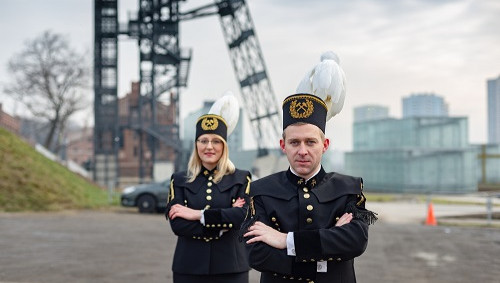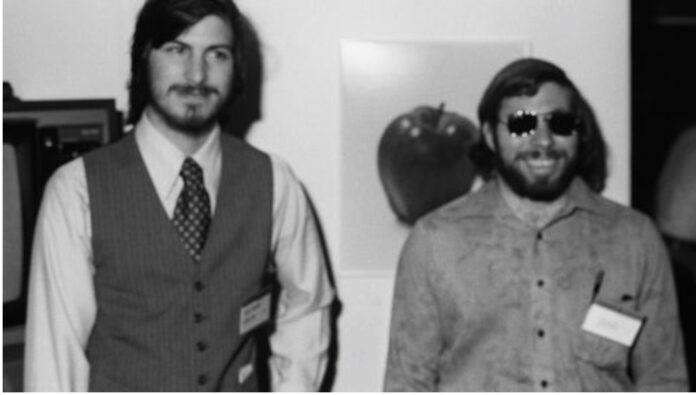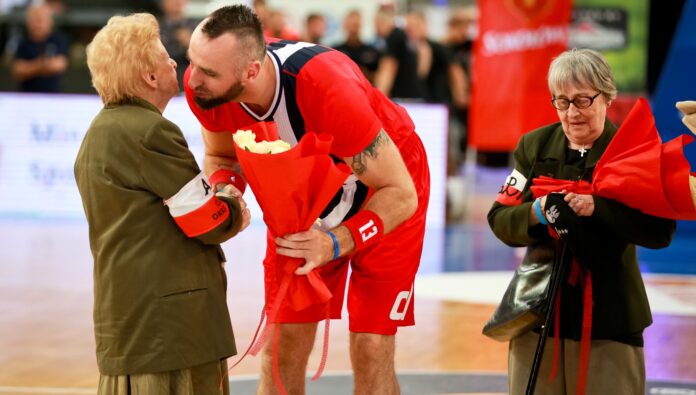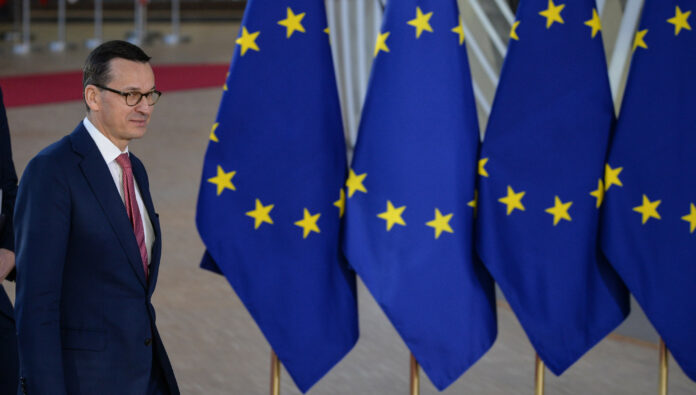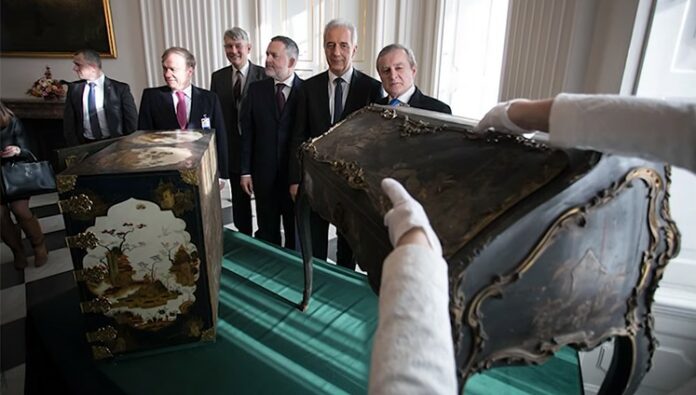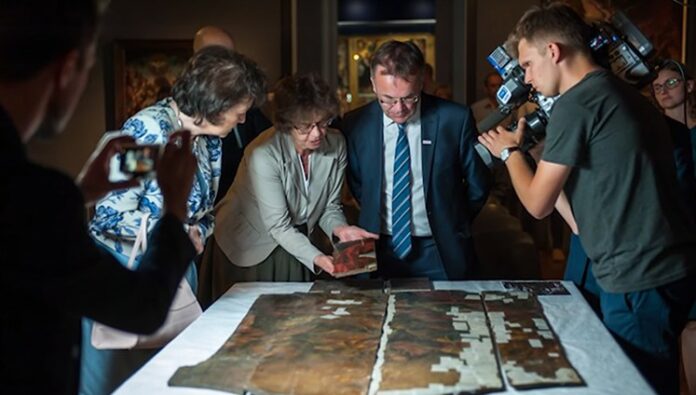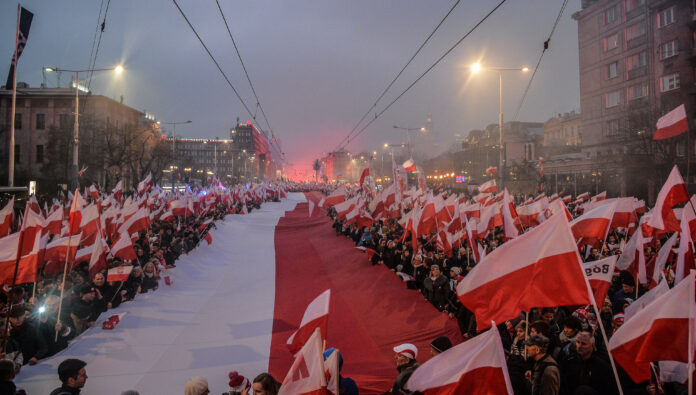The Governmental Programme “Independent Poland” was introduced in May 2017. The purpose was to encourage as many Poles as possible to join the celebrations marking the 100th anniversary of Poland regaining its Independence. Throughout Poland there were 600 national projects and a further 270 international events.
Estimation of December 2018 inflation at 1.1 %
Labour cost up in 2019
Employers expect shortages on labour market. Wages will rise?
91 percent of Polish employers expect difficulties in recruiting new staff, and many companies will be forced to increase wages says Puls Biznesu Daily. According to a report by recruitment company Hays Poland, the paper said that 87 percent of Polish employers want to increase the number of people they are hiring.
Polish companies are most often looking for IT, finance and sales experts as well as engineers, Puls Biznesu daily reported.
Legendary Apple Computer Co-Founder Steve Wozniak To Visit Poland
You may be reading this article on a virtual platform whose presence is a testament to the enduring impact of Steve Wozniak’s technological contributions. The legendary co-founder of Apple, an American of Polish lineage, will be visiting Poland in the near future.
This amazingly energetic leader with his accompanying entrepreneurial spirit will be arriving in Warsaw on November 27th. Alongside Apple Co-Founder Steve Jobs, Wozniak invented the prototype of Apple’s modern Macintosh computer with his creation of the Apple 1 Computer in 1976.
Wozniak’s career has been inspiring for so many, from their early days creating the computer with his friend Steve Jobs in their bedrooms and Job’s garage. “The Woz” has done it all, still seeking to empower young people. He recalls Founders Day, promulgated by him as Sunday, 29 June 1975, when he first illuminated to Steve Wozniak a working prototype of the Apple 1, and typed a keyboard character on a screen. Thus, Apple computer, the Mac, the iPhone, the iPad, and much more began. His honors and award are voluminous, including the National Medal of Technology by the President of the United States in 1985, the highest honor bestowed on America’s leading innovators.
Wozniak will be bringing his entrepreneurial talents to Warsaw thanks to the 100*100 Program, a brainchild of the National Polish Foundation. At its launch, Prime Minister Beata Szydlo inaugurated the National Polish Foundation as bolstering and promoting the modern Poland we have come to revere, “A beautiful, friendly Poland, a Poland that’s worth visiting, an ambitious Poland. A Poland with immense opportunities, great people and great ideas.” Who better to advance this noble mission than the man responsible for ushering the world into a modern era enhanced and defined by the optimization of our high-tech capacities?
Affectionately known as The Woz, this amiable innovator, philanthropist, and technology entrepreneur has dedicated recent efforts towards invigorating companies with the necessary passion and understanding for revolutionary industrial development and, therefore, provide new value in our constantly evolving globe. In the wake of adding another award to his repertoire, Wozniak proclaimed, “I have dedicated my career to building a better world through technology. Only through fostering innovation can we develop the solutions that will meet the economic and business challenges of tomorrow.” Attendees of the event will reap the benefits of the time Wozniak is investing in those committed towards solving our world’s greatest challenges. At the Summit, Polish start-up ventures will sit center stage for this occasion recognizing the country’s thriving entrepreneurial sector. The link connecting Poland and Silicon Valley, California, the hub of societal transformation, will be enhanced on November 27th, a developing trend upon which we shall continue to focus our attention. As “The Woz” articulated in a 2102 Forbes magazine interview, “Don’t give up your free time to partying. You can make something big when young that will carry you through life.” To express his ideas more concretely, one recalls his admonition “Think Different”, following one’s own dreams even if they seem unattainable.
Facts About Polish Pierogi
All of us know what the famous Polish “pierogi” are. How many of us realize though, that this tasty dish was introduced during the 13th century by Jacek Odrowąż, who was a saint?
At least so the legend goes. Even though pierogi do remind most people of Poland, they originally arrived in our country from China, by way of Russia.
Back in the day, pierogi were usually only prepared for weddings or other special occasions such as Christmas or Easter. Nowadays we prepare them for all possible occasions. In order to make the dough, we need just 2 or 3 ingredients – flour, water and sometimes eggs. We roll the dough flat and shape it into a “pierogi circle” by using a glass or cup as a cutter. Then all we need to do is put the filling in the middle of the circle and fold it over. The last step is closing and sealing the pierogi, either by hand or with a special tool.
The delicate dough, combined with fillings made from various kinds of meat, potatoes or cabbage allowed millions of people around the globe – including Martha Stewart – to fall in love with and want to eat Polish pierogi! Their variations can be even more interesting, though – pierogi can be served with fillings made from strawberries and blueberries, chanterelles or feta and spinach, amongst others. You can eat them boiled, baked or fried, adding different toppings to round out their great taste.
An interesting fact about the word “pierogi” is that it can be pronounced in many different ways, depending on the region which they originate from: “pierogi, perogi, perogy, pirohi, piroghi, pirogi, pirogen, pierogy, pirohy, or pyrohy.”
Marcin Gortat brings Polish Heritage Day to the NBA
The Polish basketball star was the co-organizer and driving force behind the 8th annual Polish Heritage Day in the NBA.
The 34-year old is famous in his home country not just for being a great ball player, but also for being one of the most energetic ambassadors of Polish culture in the United States.
Sunday’s event took place in connection with the game between Gortat’s new team, Los Angeles Clippers and Orlando Magic. Large parts of the arena in Los Angeles was covered in the colors of the Polish red and white flag as hundreds of Poles and Polish-Americans cheered for Gortat and the winning home team. Gortat organized the event together with the Polish National Foundation and the Polish Consulate in Los Angeles. Several Polish musicians, sportstars and actors had been invited to participate in the event which continued following the game. Polish President Andrzej Duda had sent a recorded message to all participants in which he thanked Gortat and the Polish-American community for representing Poland in an honorable way in America.
The day was an opportunity for Gortat and the local Poles to share their culture with the residents of Los Angeles and basketball fans across the US. Polish music was played during the game and afterwards it was possible to taste some Polish food and speak with Polish military veterans from World War 2. Marcin Gortat is praised in Poland for never forgetting about his roots. He has constantly promoted Polish culture in every NBA club he has played for and he is also heavily involved in charity work in Poland, particulary working with the youth through his MG13 Foundation. He has helped to fund four schools which train promising young Polish athletes, dreaming to one day repeat Gortat’s success in the US.
Polish PM believes that the EU will change after May 2019 elections
An interview given by Polish Prime Minister Mateusz Morawiecki for the Financial Times is stirring up emotions in Poland. In the interview, the Prime Minister states that the European Parliament election in May will have strong impact on the EU and that the European Commission needs to be much more receptive to what’s going on in particular member states.
The Polish liberal opposition has earlier adopted a tactic of accusing the conservative government of, willing or unwillingly, putting Poland on the path to leave the European Union. It views Morawiecki’s criticism of the European Commission in the interview as a confirmation of its claims. The government has dissmissed the accusation that it’s steering Poland in the direction of a “Polexit”. The ruling Law & Justice Party claims that under its rule, Poland is committed to the EU even though it shares the opinion of many other nations that the EU needs reform and that member states should have more to say.
In the interview, Morawiecki called on the European Commission to drop its Article 7 proceeding against Warsaw. The Commission has claimed that the rule of law is threatened in Poland following a number of judicial reforms conducted by the Polish government. Through the use of Article 7, the Commission wants Warsaw to back down from the reforms or face political sanctions. An initiative to strip Poland from its right to vote in the EU would require an unanimous decision taken by all 27 members states in European Council which is highly unlikely.
Morawiecki has earlier stated that politicians from Western Europe have a hard time understanding the reality that people in Central Eastern Europe experience on a daily basis as Western Europeans have no experience of having lived under communist oppression. He has likened the Polish judicial reform, meant to clean up the judiciary from influence of the old communist system, with the reforms and personnel replacements initiated in East Germany after 1989 as well as in France and Norway once Nazi German occupation had ended.
Prime Minister Morawiecki also pointed to the double standards employed by Western European countries in their dealings with countries in Central Eastern Europe by bringing up the way the French police treats the “gilets jaunes” protesters.
“When I look at what is happening in France, I wouldn’t say that France has an issue with the rule of law, but can you imagine if those brutal interventions would happen against demonstrators in Poland how loud the voices would be in Brussels, in Berlin or . . . maybe even Paris?” Prime Minister Morawiecki said.
Morawiecki seems to have good reasons for his stance as the EU took interest when it accused Romania of police brutality after riot police had clashed with protesters in Bucharest in the fall of 2018 while ignoring the violent clampdown against protesters in Paris or Catalonia.
Apart from launching Article 7 against Poland for its reforms in the judiciary, the European Commission also took Warsaw to the European Court of Justice. The judges in Luxembourg used an injunction against the Polish judiciary reform, forcing Warsaw to reinstate the judges which had been retired by the new Polish legislation. Since Poland has followed the decision by the ECJ, Morawiecki argues that the Commission now should drop the Article 7 proceedings against Poland, or else it will become obvious that the Commission is using the case as political tool against the Polish governement ahead of the May 2019 elections to the European Parliament.
“Now is the turn of the European Commission,” Mr Morawiecki said. “If they want to be an honest broker, because I don’t feel so far that they are an honest broker . . . they should really take decisive positive steps to clarify all these issues they have, because now we have done so much”.
Morawiecki’s hopes that the next European Parliament and European Commission will treat Poland and other Central European states differently after the election in May are well-grounded. Opinion polls show that the ruling Law & Justice are likely to win the election to the European Parliament in Poland while eurosceptic parties such as Fidesz in Hungary, Lega in Italy and National Rally (previously Front National) are poised to do the same in their respective countries.
It’s quite possible that their electoral surge will force Brussels to rethink the role that member states will play in the EU in the future.
How much have we lost to the war?
Since 1992, the Ministry of Culture and National Heritage has been gathering information regarding cultural property lost from within post-1945 borders of Poland and has taken action aimed at its recovery.
The arduous process of regaining Polish cultural property
Since 1992, the Ministry of Culture and National Heritage has taken action aimed at the recovery of lost cultural property. Agnieszka Modzolewska explains the nuances of the process.
Poles happier than ever
New opinion poll shows that Poles believe that 2018 was a good year.
Poles have the reputation of being fond of complaining about all things possible but according to a survey by the pollster CBOS, Poles are becoming increasingly optimistic about their own lives as well as the development of Poland as a country.
The survey shows that 69% of Poles believe that 2018 has been a good year for them personally and 68% of the respondents state that the year has been positive for their families,
Only 10% argued that 2018 as a bad year for them and even less, 6% stated that 2018 had been a bad year for their family.
CBOS has a tradition of measuring the outlook of Poles on their situation in life every year in the weeks before New Years Eve. This years statistics show that Poles haven’t been as satisfied about the direction their life is taking since 1989, the year that communism fell in the Soviet satellite states.
50% of respondents argued that 2018 had been a good year for the country while only 16% were of the opposite belief.
The Polish economy has been growing at a record high speed, and the GDP growth for 2018 is expected to land on 5%. The average salary has increased by up to 7% while inflation will not exceed 2%. The swift economic development is expected to continue next year even if in a slightly slower rate as the world economy is forecasted the pass zenith of the current economic cycle.


